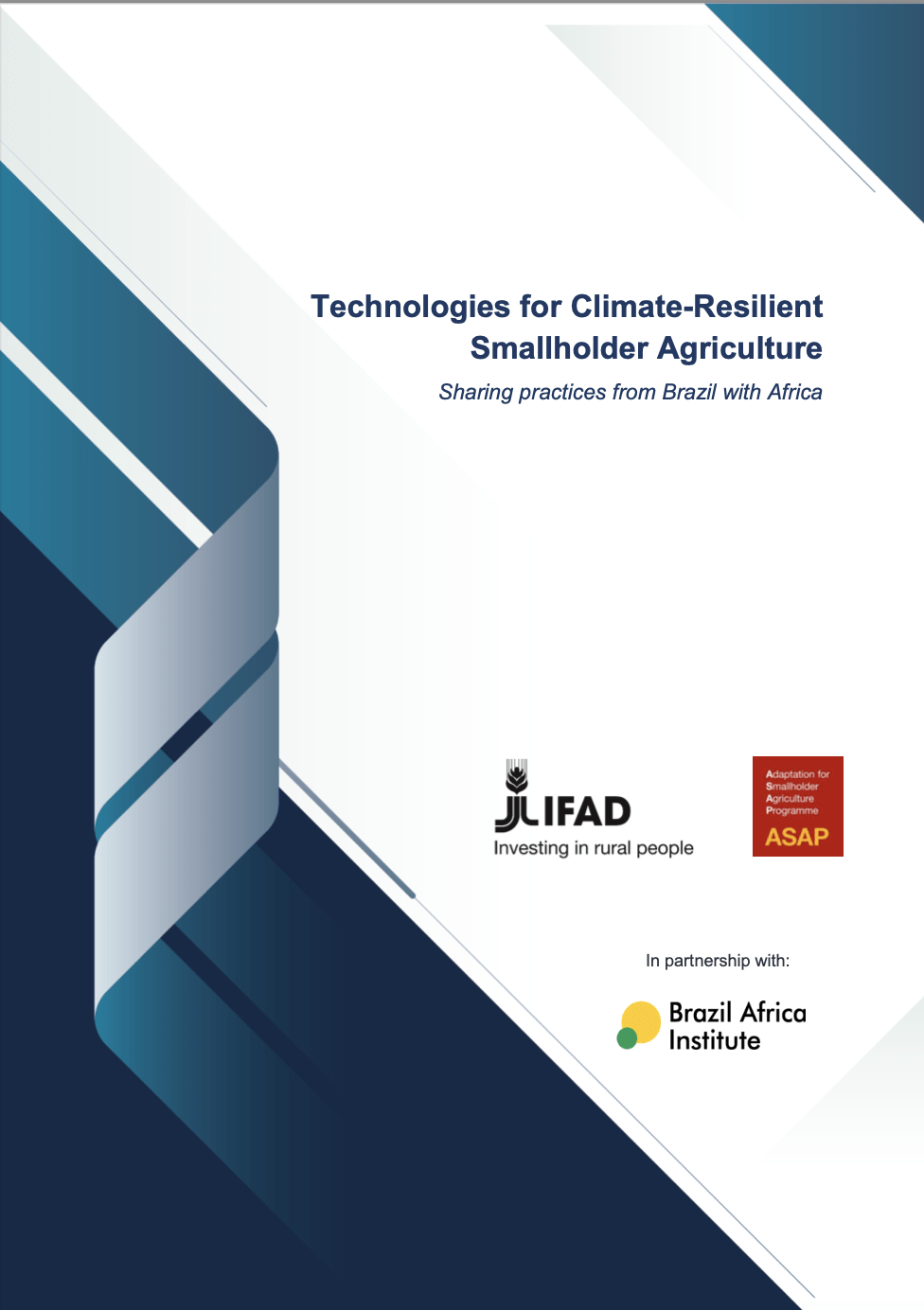Over 70 percent of the world’s poorest people – 1.4 billion women, children and men – live in rural areas and greatly depend on agriculture and related activities for their livelihoods. In some parts of the world, extreme weather events, such as droughts and heavy rainfall, are already affecting food security through decreases in crop production and quality and increases in crop pests and diseases.
Substantial efforts to tackle these challenges have been made by state and private-sector institutions in Brazil, which is a major agricultural producing country and a global reference in terms of South-South cooperation. Over the past few decades, Brazil has taken challenging development experiences and transformed them into valuable knowledge to be shared with nations of the Global South through development-oriented programmes, in which African countries have been key partners and/or beneficiaries.
There is great potential for agricultural technology transfer and adaptation between Brazil and Africa, in light of their similar environmental, climate and social conditions.
In spite of local particularities, the two regions face similar development challenges, such as poor infrastructure (transport and energy, for instance), low educational levels and weak governmental support. These common features create interesting opportunities for South-South collaboration through technology transfer in several areas, including agriculture, climate change mitigation and adaptation, and value chains development.
The development, exchange and adaptation of technologies is part of the international development agenda, as explicitly set out in Sustainable Development Goal (SDG) 17 on partnerships for development. Targets 17.6, 17.7 and 17.8 aim to “Enhance … South-South and triangular regional and international cooperation on and access to science, technology and innovation”, “Promote the development, transfer, dissemination and diffusion of environmentally sound technologies to developing countries” and “Fully operationalize the technology bank and science, technology and innovation capacity-building mechanism for least developed countries”, respectively. Improving rural livelihoods and promoting food security are two connected challenges in the agriculture sector across low-income climate-vulnerable countries, most of which are located in the Global South.
Drawing on its fundamental goal of promoting rural development, as well as its significant experience in South-South and triangular cooperation (SSTC), the International Fund for Agricultural Development (IFAD) commissioned the present catalogue with the goal of mapping good technologies and management practices in order to promote climate change adaptation and mitigation for smallholder agriculture in Africa. The report showcases both technologies and providers, presenting 11 case studies in which technologies were used in smallholder farming in Brazil in line with all the 17 SDGs.

